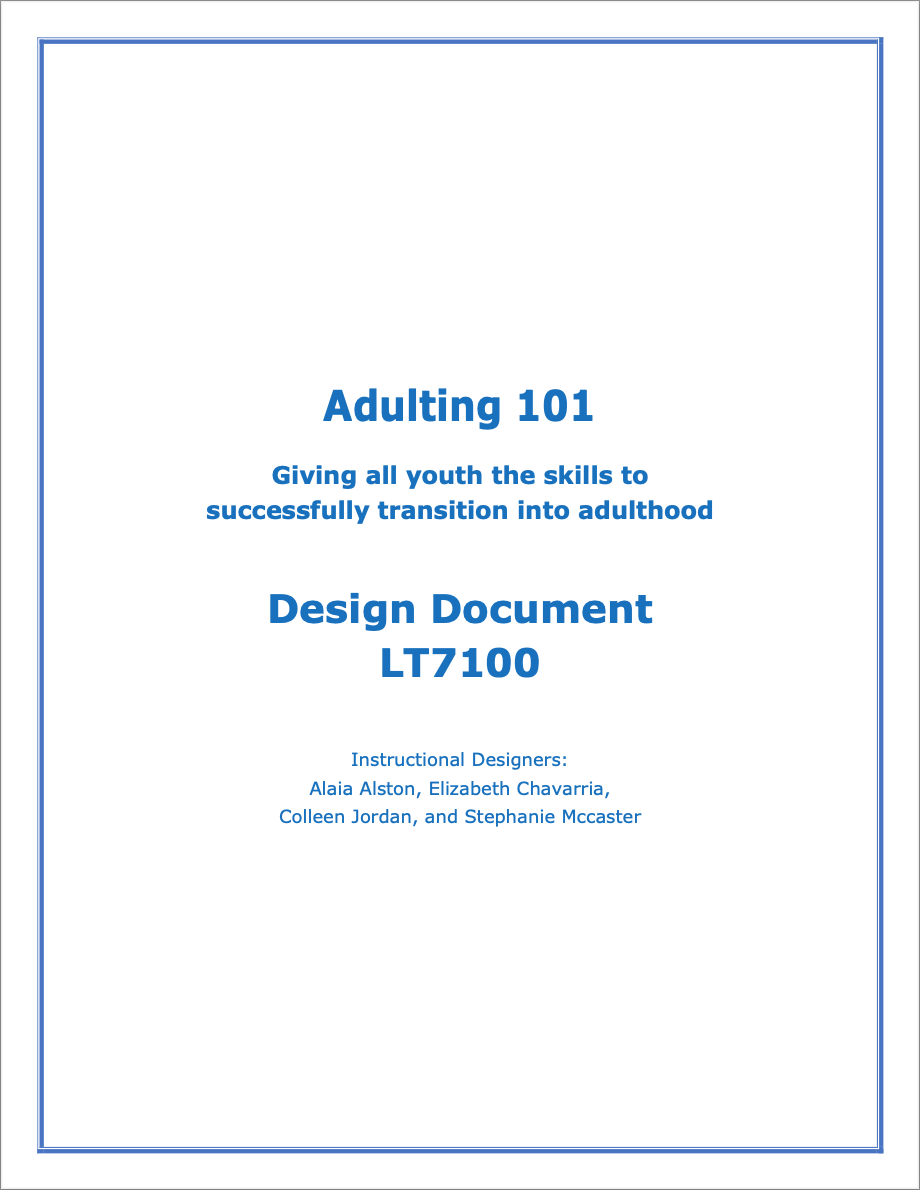Course Design: Adulting 101
Adulting 101 is a project created for LT7100 Design of Performance and Instructional Systems. In this project, we aimed to design an E-learning course for high school students to prepare them for the life skills they will ned as they enter adulthood like decision making, goal setting, accessing resources needed to perform daily tasks, money management, personal and professional relationships. The purpose of this course is to give all students equitable access to these resources.
Skills Used:
Curriculum design
Task analysis
Visual communication
Collaboration
Gagne’s nine events
Graphic design
Software: Microsoft Office, XMind, Adobe Illustrator



More About the Project:
For our semester-long project, my group and I created an hybrid online and in-person educational program for Georgia high school students called Adulting 101. This course is to support high school students with learning life skills not often taught in traditional learning environments and is meant to help to provide all students with equitable access to learning about topics they will encounter in their adult lives to enable all students to thrive in adulthood. Our project incorporates Gagne’s Nine Events to engage the learner, provide them with the course information and to provide them with feedback.
We started with a needs statement, and discovered a need for young people to be better prepared about the demands of life after high school graduation, were able to create the objectives for our course. We then performed a task analysis of the tasks and actions that students will eventually encounter as adults and grouped actions in to categories such as physical and mental health, public life, and safety. Our learner analysis helped us to break the curriculum into a four year course that builds each year upon prior knowledge while adding in age appropriate topics each year.
Within our project, there is a sample curriculum map for the course to follow as well as a sample activity map for one module. We also developed a small prototype of the microlearning interactions that students will see if they choose to take part in aspects of the course virtually.
Students will have many opportunities to receive feedback throughout the course in the form of several types of assessment activities. To enhance long-term learning and encourage transfer of these skills the program is a designed with a variety of activities like the opportunity for hands-on lessons and the ability to work through home-based activities with their families.
We also developed several strategies to assess the effectiveness of the course and elicit feedback about its performance. Community experts will be invited to give their feedback on the course content before, during, and after implantation. Students will be invited to share their feedback on the course through focus groups and course evaluations.
I worked with Alaia Alston, Liz Chevarria, and Stephanie Mccaster on this project.

